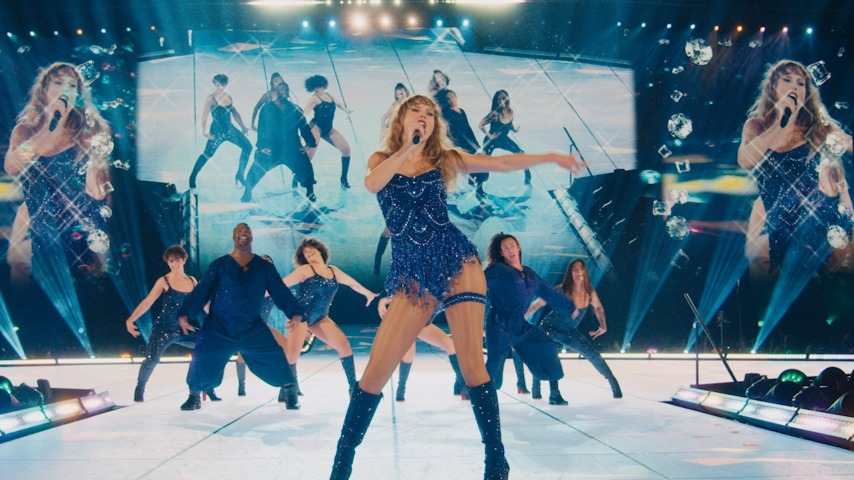In a letter shared on her website, Swift wrote of her elation at this latest turn of events, writing that she “almost stopped thinking it could ever happen after 20 years of having the carrot dangled and then yanked away.” (She also hinted that she came close to getting them back multiple times before, “only for it to fall through.”) “All I’ve ever wanted was the opportunity to work hard enough to be able to one day purchase my music outright with no strings attached, no partnership, with full autonomy,” the singer wrote. “I will be forever grateful to everyone at Shamrock Capital for being the first people to ever offer this to me. The way they’ve handled every interaction we’ve had has been honest, fair, and respectful. This was a business deal to them, but I really felt like they saw it for what it was to me: My memories and my sweat and my handwriting and my decades of dreams. I am endlessly thankful. My first tattoo might just be a huge shamrock in the middle of my forehead.”
Shamrock Capital purchased Taylor Swift’s masters from Braun in 2020 for $300 million. At the time, Swift stated publicly that she was once again not offered the chance to buy her music first. She added that she “was so disappointed when I learned that under the terms of your acquisition, Scooter Braun and Ithaca Holdings would continue to receive many years of future financial reward from my music masters, music videos, and album artwork.” A recent tabloid item suggested that Braun was the one pushing this latest sale back to Swift, but a source for People disputed that account. “Contrary to a previous false report, there was no outside party who ‘encouraged’ this sale. All rightful credit for this opportunity should go to the partners at Shamrock Holdings and Taylor’s Nashville-based management team only,” the insider said. “Taylor now owns all of her music, and this moment finally happened in spite of Scooter Braun, not because of him.”
Despite the heartache and bad blood, the “Taylor’s Version” era was extremely profitable for the superstar. She made tons of cash on the vinyl and merch sales surrounding the four albums she re-recorded, racked up new Grammy nominations for old songs, and even made an Oscars push for her All Too Well short film. And of course, the concept of revisiting these previous “eras” launched the blockbuster Eras Tour, the success of which Swift credited as the reason she was able to buy back her masters in the first place (we have to imagine Shamrock wouldn’t part with that extremely valuable catalog for anything less than the $300 million it paid). Only two albums were left to re-release: her self-titled debut album and 2017’s Reputation. In her letter on Friday, Swift said she’d finished re-recording her debut but had barely begun Reputation (“it’s the one album in those first 6 that I thought couldn’t be improved upon by redoing it”). She said she may still release the debut and the bonus “Vault Tracks” from Reputation “when the time is right.”
Swift’s passionate, public battle to own her work reverberated throughout the music industry; when she moved labels to Universal Music Group in 2018, her deal stipulated “that any sale of [UMG’s] Spotify shares result in a distribution of money to their artist, non-recoupable … at what they believe will be much better terms than paid out previously by other major labels,” per her statement at the time. After re-acquiring her masters, Swift reiterated in her letter, “I’m extremely heartened by the conversations this saga has reignited within my industry among artists and fans. Every time a new artist tells me they negotiated to own their master recordings in their record contract because of this fight, I’m reminded of how important it was for all of this to happen. Thank you for being curious about something that used to be thought of as too industry-centric for broad discussion. You’ll never know how much it means to me that you cared. Every single bit of it counted and ended us up here.”

 Keep scrolling for more great stories.
Keep scrolling for more great stories.
